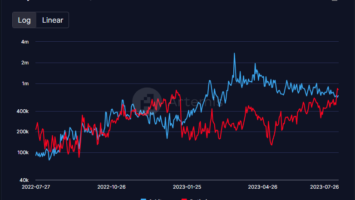While decentralized finance (DeFi) token prices may be going down, new forms of utility like liquid staking are on the rise and some believe that more people may be drawn to DeFi as more institutions jump into the fray.
According to Eric Chen, CEO and co-founder of Injective Labs, while the DeFi sector has witnessed massive growth since 2020, there are still issues to solve such as gas fees, scalability and liquidity. Chen said that the entire DeFi industry is focused on building infrastructures to address these problems.
“It still has a lot of problems to solve before being able to serve billions of users. Scalability, miner extractable value and gas costs will become more and more important to improve over time.”
The DEX founder also believes that the sector’s growth can be attributed to the development of new primitives and user growth. Moreover, Chen also told Cointelegraph that adoption may be driven by the participation of traditional finance entities. “With many traditional institutions joining the space, DeFi will gradually reach mass adoption,” said Chen.
Permissioned DeFi, a form of DeFi that combines decentralization with centralized mechanisms like whitelisting for KYC and AML purposes, may give institutions a push to adopt DeFi. Chen explained that:
“Permissioned DeFi certainly allows traditional institutions to be much more comfortable in participating in the ecosystem. It will play an important role in fostering global mainstream adoption.”
Earlier in 2022, liquidity protocol Aave launched a permissioned DeFi pool. The pool allows institutions to access decentralized finance features while being compliant with existing regulations.


Related: Gas-free transactions will revolutionize Web3
When asked about DeFi regulation, Chen mentioned that DeFi is easier to regulate than legacy infrastructures. The DEX founder emphasized that the mission of DeFi is to “provide decentralized, secure, and transparent financial services.” Because of this, Chen believes that proper research will give regulators an easy way to regulate DeFi.
“With proper research and understanding, regulators will find a much easier time regulating DeFi and preventing malicious behaviors compared to the legacy financial infrastructure.”






















Comments (No)